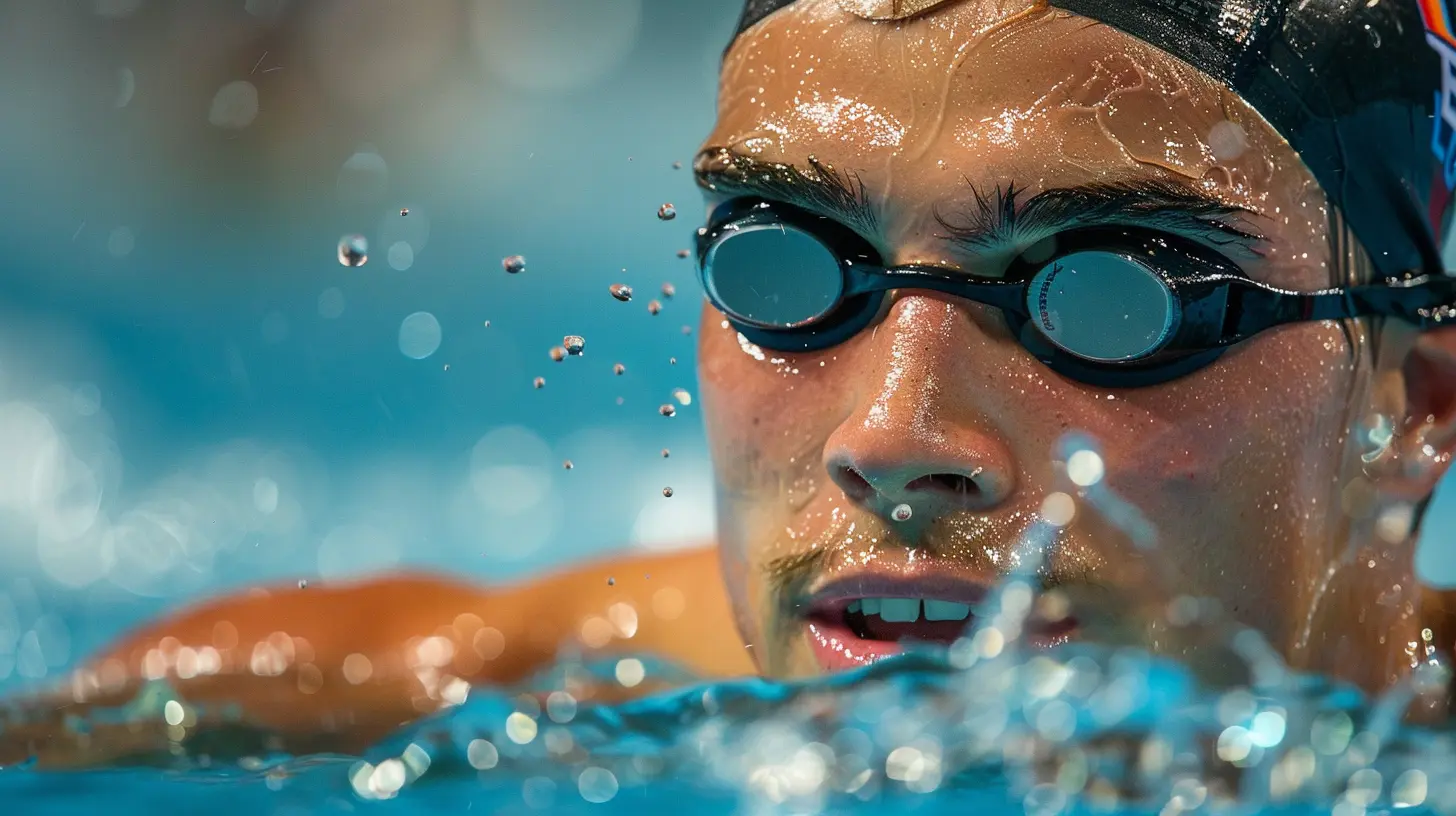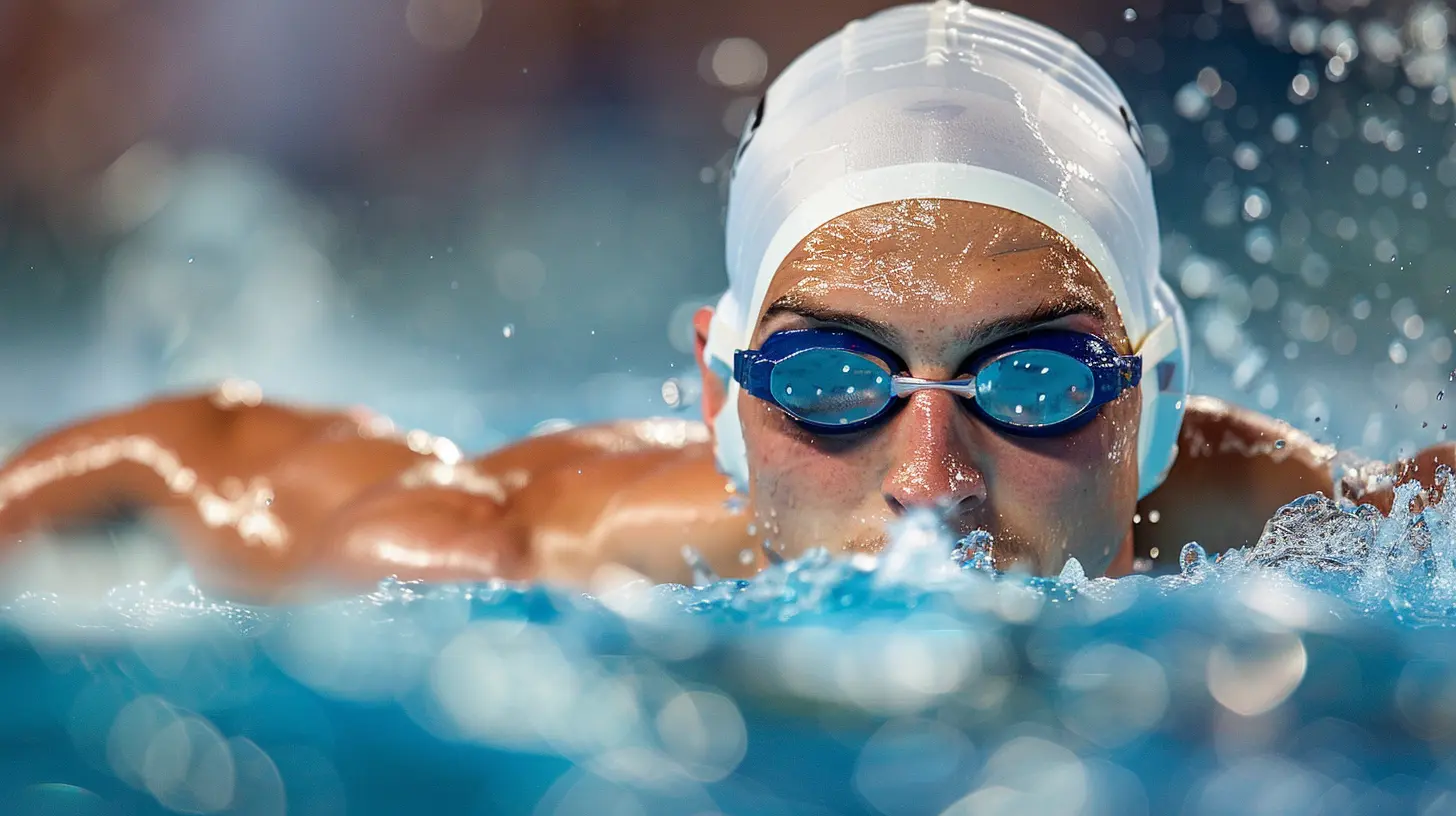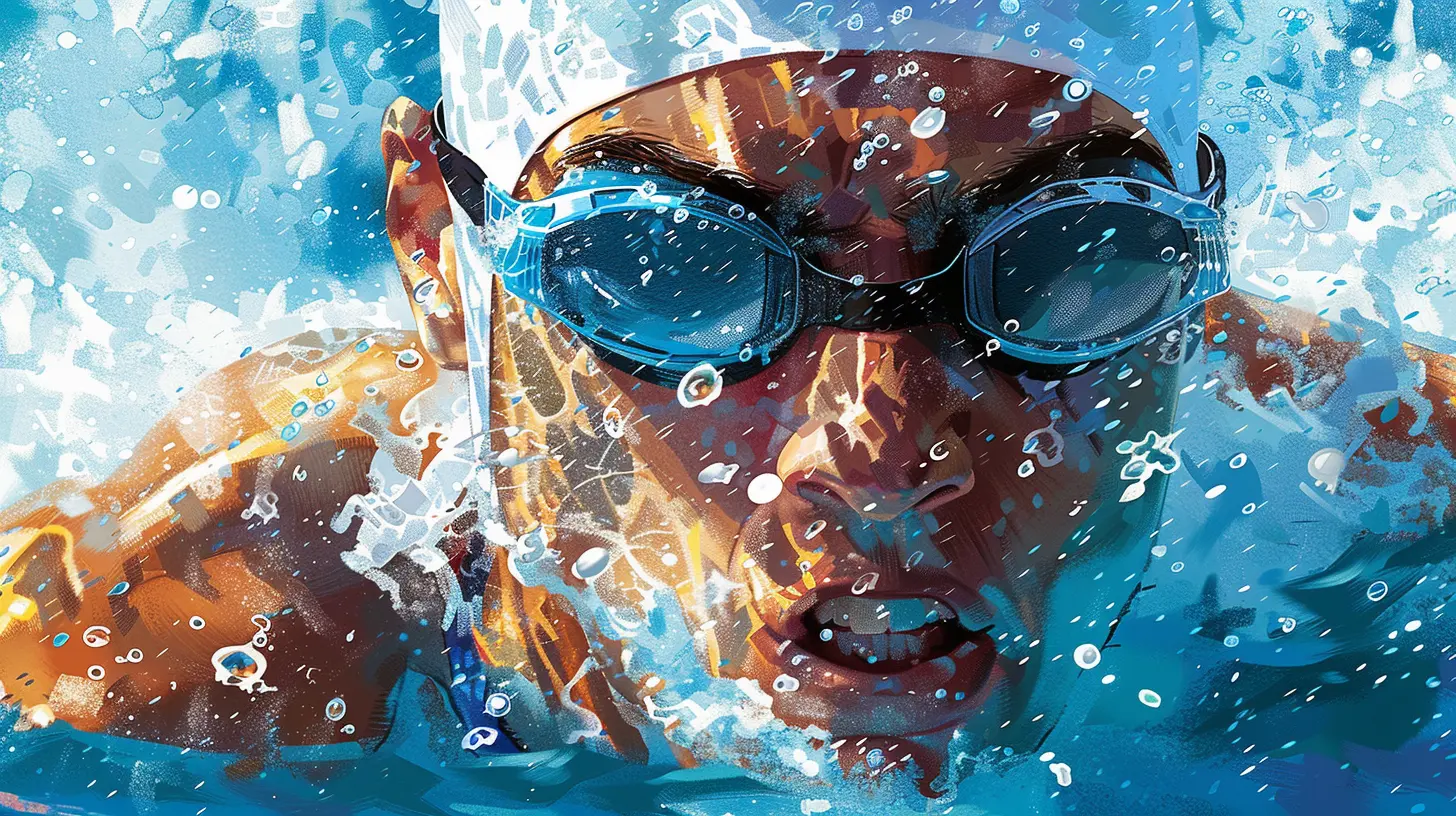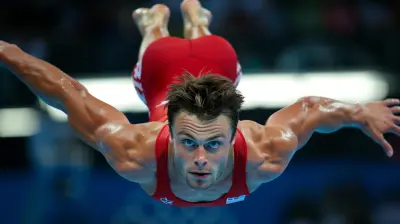The Mental Side of Competitive Swimming: Staying Focused and Relaxed
22 April 2025
Competitive swimming isn’t just about having the fastest stroke or the strongest muscles. Sure, physical strength plays a huge role, but there’s another side of the sport that often gets overlooked—the mental side. Swimming is as much a mental game as it is a physical one. Whether you're a seasoned competitor or just starting, understanding how to stay focused and relaxed in the pool could be the difference between touching the wall first or coming up short.
In this article, we'll dive deep into the mental side of competitive swimming, exploring why it’s just as important as your physical training, and how you can master it to perform at your best.
Why Mental Strength is Key in Competitive Swimming
When you're standing behind those blocks, heart racing and palms sweating, it’s easy to feel overwhelmed. You’ve put in the hours, trained your body, and perfected your technique, but what happens when self-doubt starts creeping in? That’s where your mental strength comes into play.Competitive swimming is a sport where races can be won or lost by fractions of a second. Your mindset can be the secret weapon that pushes you beyond your limits—or the invisible anchor that holds you back.
The Mental Pressure of Swimming
Think about it: in swimming, you’re essentially racing against the clock—against yourself. Unlike team sports, where you can rely on teammates to help you out, swimming is mostly an individual battle. Every stroke, every breath, every turn comes down to you. That kind of pressure can either make you or break you.Plus, the environment in which swimmers compete is unique. You’re not just dealing with the mental stress of the race, but also the physical isolation of being underwater. It’s just you, the water, and your thoughts. There are no audible cheers from the crowd, no encouraging words from your coach. It’s quiet, and that silence can sometimes be deafening.
The Link Between Mental and Physical Performance
Here’s the kicker: your mind and body are closely connected. If you're mentally scattered or anxious, your body won't perform at its peak. Ever notice how hard it is to swim when you’re feeling nervous or unfocused? Your strokes feel off, your breathing becomes erratic, and your speed drops.On the flip side, when your mind is sharp and calm, your body responds in kind. You move more efficiently through the water, your strokes are smooth, and you’re able to maintain that coveted rhythm. Everything just clicks. 
Staying Focused in the Pool
Focus is everything in swimming. When you’re in the water, you need to shut out distractions and zero in on your task. But how exactly do you stay focused when your brain wants to go in a thousand different directions?Visualization: See it Before You Swim It
One of the most powerful tools swimmers use is visualization. This involves mentally rehearsing your race in your head before you even hit the pool. Picture yourself diving off the blocks, your body cutting through the water, each stroke being powerful and precise, and finally reaching the wall in record time.Visualization helps you create a mental blueprint of the perfect swim. By repeatedly imagining yourself succeeding, you’re training your brain to focus on the positive outcome. You’re essentially building muscle memory in your mind. So, when race day comes, your brain already knows what to do.
Break the Race into Smaller Chunks
Another great way to stay focused is by breaking the race down into smaller, more manageable parts. Instead of thinking about the entire 200-meter freestyle, focus on the first 50 meters, then the next 50, and so on. By doing this, you prevent your mind from becoming overwhelmed by the enormity of the task.It’s like eating an elephant—one bite at a time. Breaking the race into smaller parts allows you to be present in the moment and nail each section before moving on to the next.
Have a Pre-Race Routine
Routines aren’t just for comfort—they help prime your brain for focus. If you watch elite swimmers, you'll notice they all have their little quirks before a race: some shake their arms, others do breathing exercises, some listen to specific songs. These aren’t random habits—they're mental cues that signal to the brain, "It’s go time."Having your own pre-race routine can be a game-changer. It doesn’t have to be complicated. Maybe it's taking a few deep breaths, stretching in a specific way, or replaying your race strategy in your head. It’s all about getting your mind in the zone.
Staying Relaxed Under Pressure
Swimming under pressure is tough. You’re up against the clock, your competitors, and your own nerves. However, staying calm is crucial if you want to perform at your best. Here’s how to keep those jitters in check.The Power of Deep Breathing
One of the quickest ways to calm your mind is through deep breathing. When you're nervous, your breathing tends to become shallow, which can increase feelings of stress and anxiety. Taking deep, controlled breaths helps reset your nervous system and slows down your racing heart.Before a race, try this: inhale deeply through your nose for four counts, hold it for four counts, and exhale slowly through your mouth for four counts. Repeat this a few times, and you’ll feel your body relax almost instantly.
Breathing exercises aren’t just for the moments before a race, though. You can incorporate them into your everyday training, so staying calm becomes second nature.
Embrace the Nerves
Here’s an unconventional tip: don’t fight your nerves—embrace them. Feeling a little nervous before a race is actually a good thing. It means you care, and your body is preparing for battle. The trick is not to let those nerves overwhelm you.Instead of seeing nerves as a sign of weakness, view them as energy you can channel into your race. It’s like turning fear into fuel. The next time you feel those butterflies in your stomach, remind yourself that they aren’t there to sabotage you—they're there to help.
Practice Under Pressure
One of the best ways to stay relaxed in high-pressure situations is by practicing under similar conditions. In other words, simulate race-day pressure during your training sessions. Try doing mock races with your teammates, or time yourself on your own. The more familiar you are with the feeling of being under pressure, the easier it will be to stay calm when it really counts.Think of it like building a mental muscle—the more you practice staying calm under pressure, the stronger and more resilient that muscle becomes.
Overcoming Mental Blocks
Even the best swimmers face mental blocks from time to time. Maybe you’ve hit a plateau, or you’re struggling to get over a bad race. Whatever the case, mental blocks can be frustrating. But they’re not impossible to overcome.Focus on the Process, Not the Outcome
One of the reasons swimmers get stuck in mental ruts is because they become too focused on the outcome—winning the race, hitting a personal best, or beating a rival. While it’s great to have goals, becoming obsessed with the end result can lead to performance anxiety.Instead, try shifting your focus to the process. Focus on executing your technique, nailing your turns, and maintaining your rhythm. When you concentrate on what you can control, the outcome will take care of itself.
Positive Self-Talk: Be Your Own Coach
Your internal dialogue can make or break your performance. If you're constantly telling yourself, “I’m not fast enough,” or “I’m going to mess this up,” guess what? You probably will.Positive self-talk isn’t about being delusional or overly optimistic—it’s about being constructive. Instead of focusing on what you can’t do, focus on what you can. Replace negative thoughts with affirmations like, “I’m prepared,” “I’ve trained for this,” or “I’m getting stronger with every stroke.”
Being your own cheerleader isn't just about feeling good—it’s about creating a mental environment where you can thrive.
The Role of Rest and Recovery in Mental Stamina
It’s easy to get caught up in the cycle of train, eat, sleep, repeat. But if you want to stay mentally sharp, you need to prioritize rest and recovery just as much as your physical training.Sleep: The Ultimate Mental Recharge
Sleep is your brain’s way of hitting the reset button. It’s during sleep that your body repairs itself, and your mind processes everything you've learned. Without enough rest, both your physical and mental performance will suffer. Aim for at least 7-9 hours of quality sleep per night, especially during competition season.Active Recovery for the Mind
Active recovery isn’t just about giving your muscles a break. It’s also about giving your mind a chance to decompress. Engage in activities that help you relax and unwind—whether it’s reading, meditating, or hanging out with friends. The more balanced you are outside of the pool, the more focused you’ll be when you’re in it.Conclusion
The mental side of competitive swimming is just as important as the physical. Staying focused and relaxed under pressure can give you the edge you need to excel in the pool. By practicing techniques like visualization, deep breathing, and positive self-talk, you can train your mind to be just as strong as your body. And remember, mental strength, like physical strength, isn’t built overnight—it takes time, practice, and patience. So, the next time you dive into the water, don’t just swim with your body—swim with your mind too.all images in this post were generated using AI tools
Category:
SwimmingAuthor:

Easton Simmons
Discussion
rate this article
6 comments
Isabella Marks
Vital insights for peak performance!
May 3, 2025 at 6:51 PM

Easton Simmons
Thank you! I'm glad you found the insights valuable for enhancing performance!
Everett Wilson
Mindset is crucial; balance focus and relaxation.
May 2, 2025 at 3:20 AM

Easton Simmons
Absolutely! A balanced mindset enhances performance by combining concentration with the ability to stay relaxed, leading to optimal results in competitive swimming.
Fallon Bowman
This article highlights a crucial aspect of swimming that often gets overlooked. Mental resilience can make or break a swimmer's performance. Emphasizing focus and relaxation techniques is essential for both training and competition. A great read for anyone looking to enhance their mental game in sports!
May 1, 2025 at 12:44 PM

Easton Simmons
Thank you! I'm glad you found the article valuable. Mental resilience is indeed key to success in swimming. Your insights on focus and relaxation techniques are spot on!
Eden Pope
Great article! The mental aspect of competitive swimming is often overlooked, but it's so crucial for success. Your insights on staying focused and relaxed can truly inspire swimmers to cultivate a stronger mindset. Keep up the fantastic work—mental resilience is just as important as physical training!
April 26, 2025 at 4:40 AM

Easton Simmons
Thank you for your kind words! I'm glad you found the insights valuable—mental resilience is indeed key to success in competitive swimming. Appreciate your support!
Jocelyn McLanahan
Great insights! Balancing focus and relaxation is crucial for swimmers. Embracing the mental side can truly elevate performance. Keep sharing these valuable tips!
April 25, 2025 at 4:35 AM

Easton Simmons
Thank you! I appreciate your support and totally agree—mental balance is key for success in swimming.
Elise Strickland
Great insights! Balancing focus and relaxation is crucial in swimming. Mental strength often makes the difference in high-pressure situations.
April 23, 2025 at 6:35 PM

Easton Simmons
Thank you! I completely agree—mental strength is key to performing well under pressure in swimming. Balancing focus and relaxation truly enhances competitive performance.
MORE POSTS

The Art of Trash Talk: How Mental Warfare Plays a Role in Basketball

The Mentor Approach: Building Trust Between Coaches and Players
![A Star Among Stars: Why [Player Name] is One of the Leagues Brightest](/pictures/blog/small/a-star-among-stars-why-player-name-is-one-of-the-leagues-brightest_1.webp)
A Star Among Stars: Why [Player Name] is One of the Leagues Brightest

The Best Pre-Game Rituals to Boost Your Performance

Olympic Gymnastics: The Balance Between Power and Grace